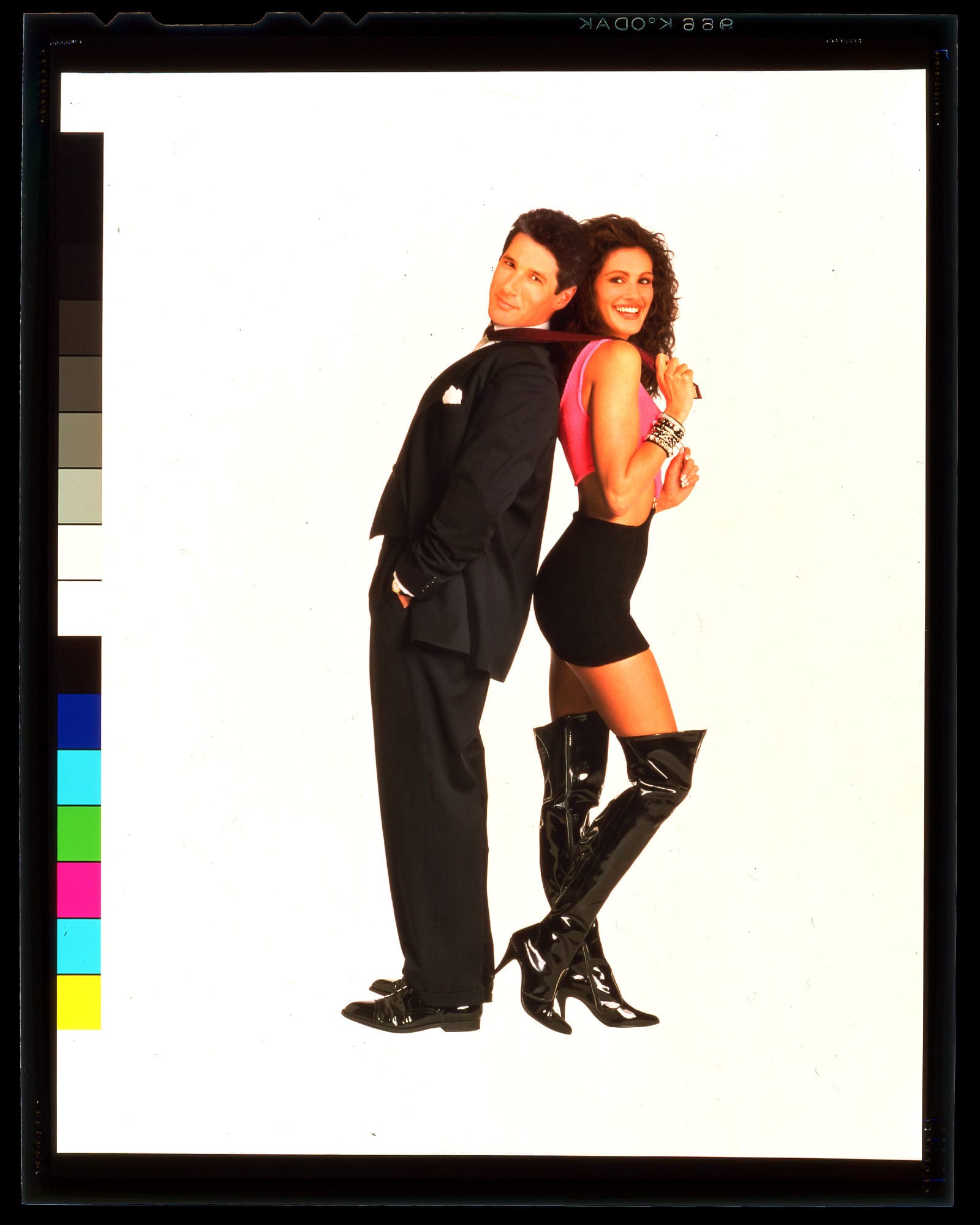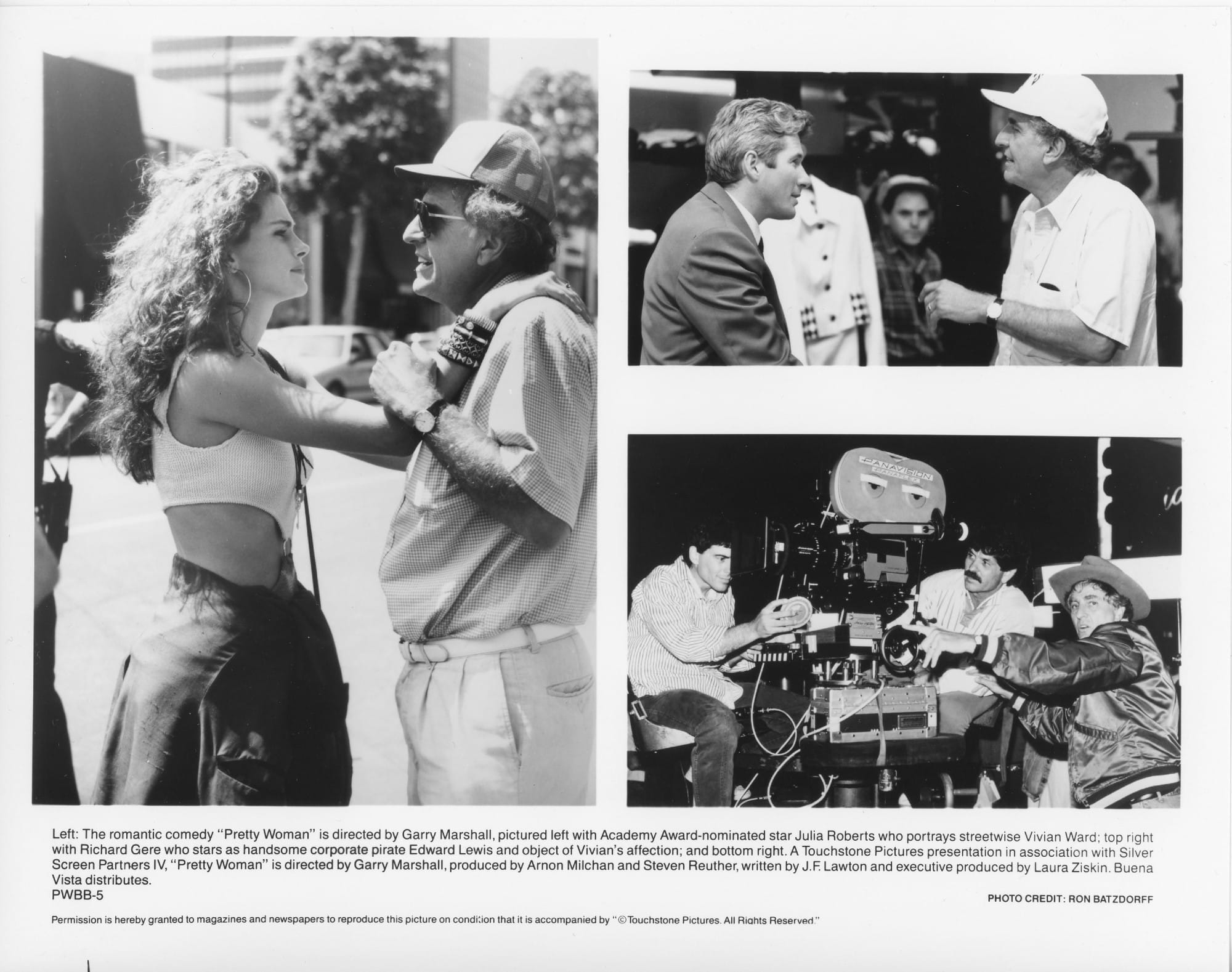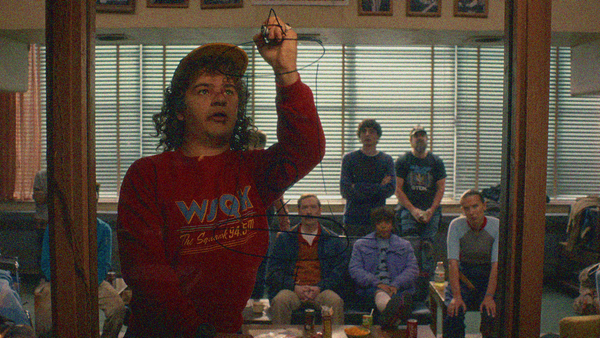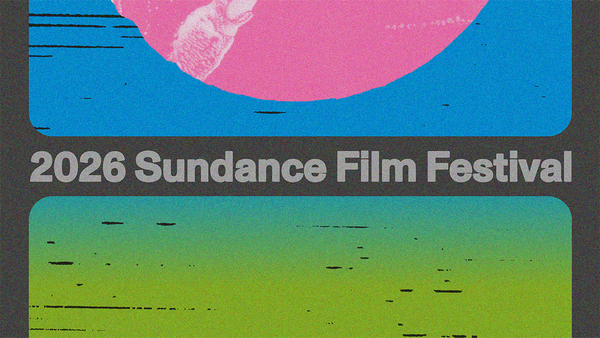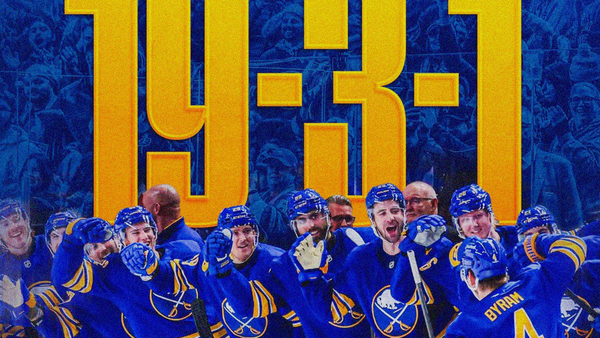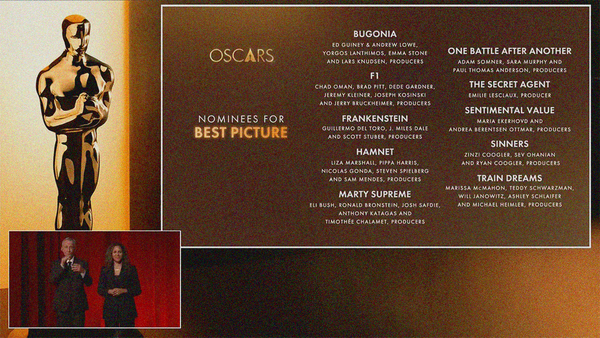Week Ending 9/26/25
Robert Redford at Dipson Amherst
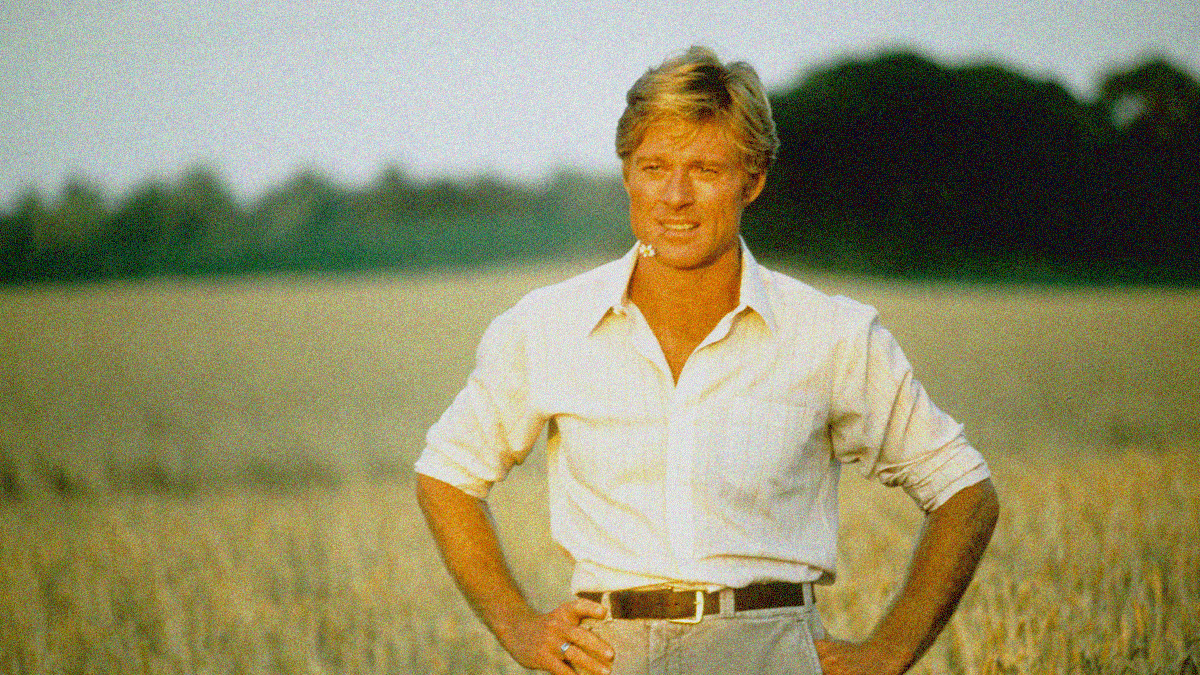
Robert Redford passed away at age 89 ten days ago and Dipson Amherst has just announced that they'll be memorializing the screen legend with a four-day series of films next month. Each title will play at 1:00pm, 4:00pm, and 7:00pm during its respective day.
October 6: The Sting, directed by George Roy Hill
October 7: The Natural, directed by Barry Levinson
October 8: All the President’s Men, directed by Alan J. Pakula
October 9: A River Runs Through It, directed by Robert Redford
A founding member of the Sundance Film Festival (announced this year to be leaving Utah for Boulder, Colorado in 2027), the actor will always be linked to Buffalo due to filming The Natural here. I had the pleasure of seeing that classic on North Park Theatre's big screen courtesy of TCM Backlot in 2017, so everyone who missed it then now gets a second chance.
You might have your own connection to the movie you might not know about too. I discovered as much a few years ago when my father digitized a bunch of my maternal grandfather's old home movies only to find shots of him covertly filming the sets around his downtown law office back in the 80s. So, if you had family working in the area back then, they just might have strolled by themselves.
The Sting is an all-timer. All the President's Men is too ... although I wonder if it will feel quaint against the backdrop of today's unchecked governmental corruption. As for A River Runs Through It: I've never seen it. But I've also never seen a film directed by Redford that I didn't like. His masterpieces Ordinary People and Quiz Show and his more divisive final three features.

All the Devils are Here
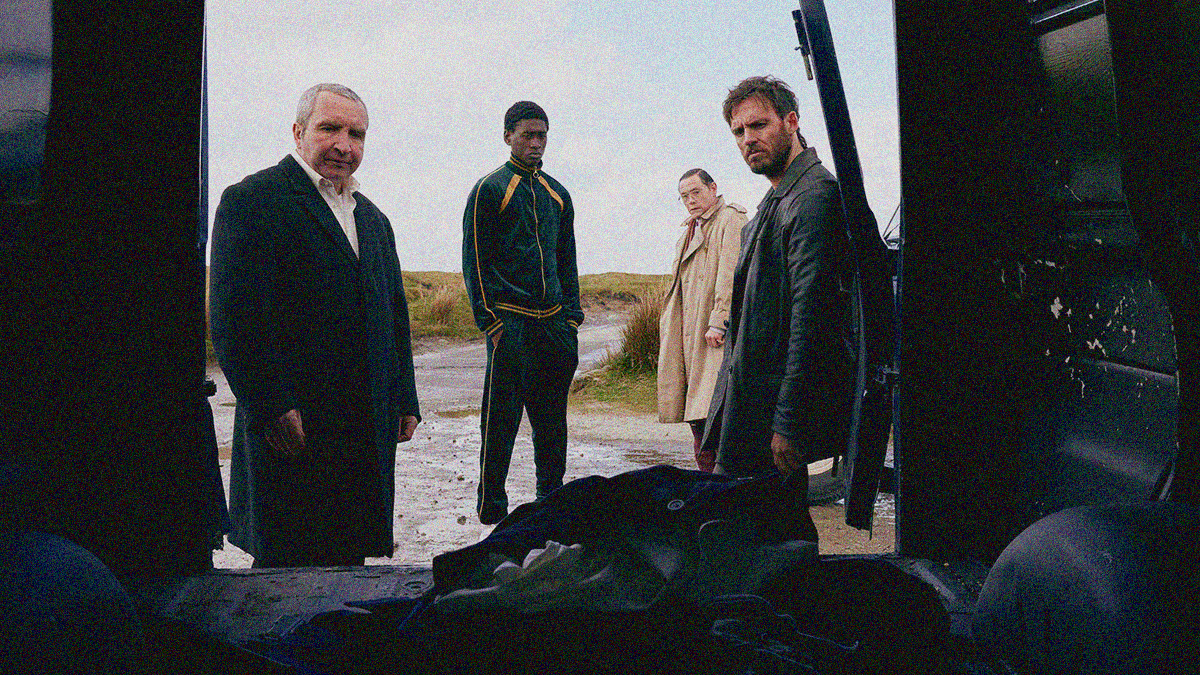
Narrated by Ronnie (Eddie Marsan) as though a letter to the daughter he never got to raise due to a life of crime, Barnaby Roper's All the Devils are Here follows what he hopes might be his final job for the enigmatic Mr. Reynolds. He never officially explains this hope to Harold Laing (Rory Kinnear) when getting his instructions, but we see it in his demeanor. This is but a task. Ronnie feels no joy in the robbery itself nor the need to babysit a psychopath (Sam Claflin's Grady) and a novice (Tienne Simon's Royce). He's done.
As John Patrick Dover's script constantly reminds us, however, that's not his decision to make. No, Mr. Reynolds is the end all be all voice of God. He tells you when to jump and when to jump higher. So, Ronnie will supervise the robbery and live up to his four-decades-long reputation of professionalism. He'll chaperone his accomplices, pick-up their remunerator (Burn Gorman's Numbers), escort them all to a desolate farmhouse, and cook them dinner while they await their next orders from the boss.
Whereas Ronnie is used to relying on a job well done to be followed by a swift response, this particular operation wasn't that. Sure, they got the money, shook the police, and made it to their destination. But they also left a couple bodies along the way—something he knows Mr. Reynolds won't be happy to learn. Is it enough to listen to Grady and Royce when their respective chaotic nature and paranoia pose the hypothesis that they've been cut loose and should take the money and run? No. He knows that would only earn a worse fate.
The film is therefore about the waiting. Grady getting drunk. Royce confronting his fears. Numbers shooting heroin while his "best girl" reel-to-reel blares music. Ronnie smoking cigarettes while reading Dickens with an eye always surveying the temperature of the group. Must he make an example of Grady? Will he cave and agree they've been left for dead? Might Grady go on a rampage during the night, killing the others out of boredom? Heck, even C's (Suki Waterhouse) late arrival for a supply run only seems to increase the urge to flee.
As each day progresses and their demeanors start fraying, Roper and Dover sprinkle in flashbacks to Harold Laing's office so we can glean a little more about the other characters from their conversations. It's only fair since Ronnie's initial meeting provided insight into his motivations and loyalty. Let us also learn how anyone thought Grady was trustworthy. Share details on why Royce was added to the team despite being so green. Even Numbers seems out of place considering the drug addiction and Ronnie's admission that they've never crossed paths.
I personally began to assume it was all a test. Put this eclectic bunch together to weed out who's unreliable and see if Ronnie can still be relied upon with one foot out the door. Because if he's willing to put the screws to this trio and either get them in line or erase them from the equation, maybe retirement is a possible alternative to simply killing him for his service. It's a legitimate theory to go along with the one stating Reynolds is pissed and leaving them all to die. And since we're going stir-crazy too (Could C be Ronnie's kid?), everything is on the table.
Should I have guessed Dover's main reveal? Probably. It's a bit of a cop-out, but I really like that there's a super bleak epilogue of sorts making it less so. The choice doesn't ultimately matter anyway since the characters' devolution would happen either way. That's where the film's purpose lies. Who Royce will decide to become. Whether Grady will stop talking long enough to see he's not the alpha in the room. If Ronnie finally snaps to make good on his firm verbal assertion of power. Who Numbers is and why Grady thinks he knows him.
Without these characterizations and the talented cast bringing them to life (I was initially going to skip this one until seeing how stacked the credits were), every feasible ending to All the Devils are Here becomes moot. The actors make this morality tale sing with hypocrisy, vice, and regret. Scenes like Marsan begging Simon to give up crime or Claflin humorously sharing his persuasively crude intentions work precisely because they've nowhere else to go. Neither reason nor hope can save them from what they truly can't escape: themselves.
7/10
Eleanor the Great
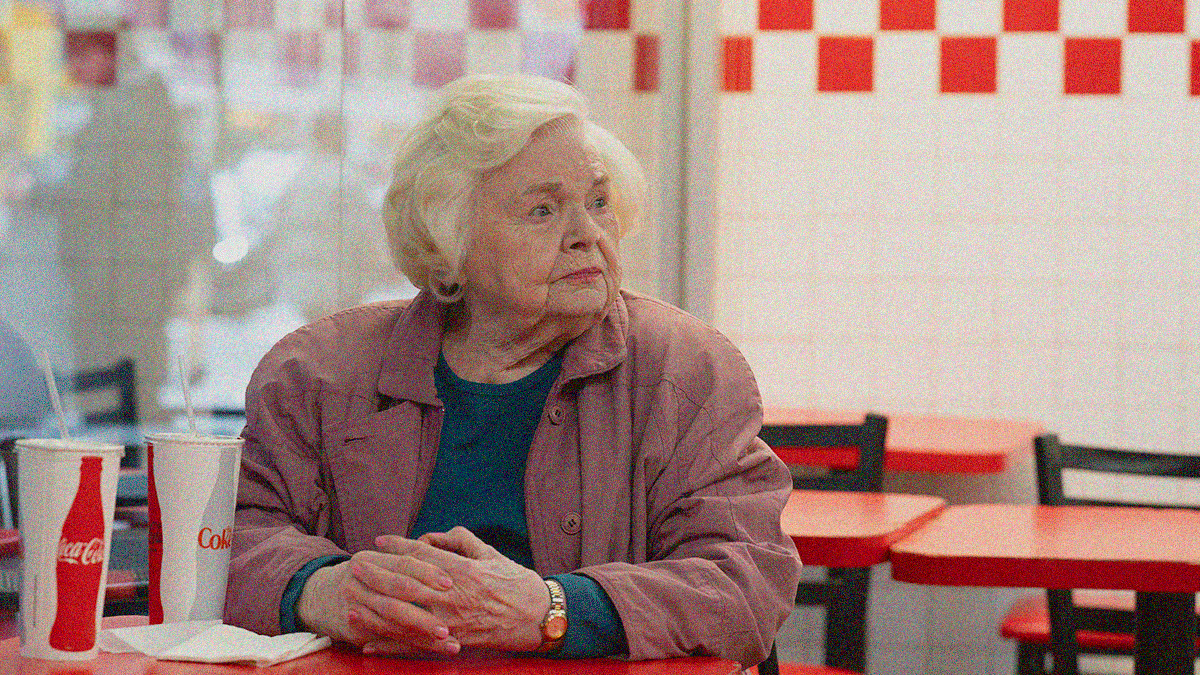
You must hand it to Scarlett Johansson for deciding to tackle a subject that would never go down easy in a climate hellbent on eradicating nuance from public discourse. It's not like there wasn't a recent example to understand the sort of backlash coming either considering Amma Asante's Where Hands Touch released seven years ago with a similarly knee-jerk and reductively reactionary response. Just as I found a lot to like in the contextualization of that film, however, I think there's a lot to like here too. Even with its overt sentimentality.
Written by Tory Kamen, Eleanor the Great is superficially about a nonagenarian who stumbles into a Holocaust survivors meeting and ends up orating the experiences of her best friend (who just passed away) as though they were her own. The idea is that it would allow Eleanor (June Squibb) to escape the awkwardness of leaving after all these strangers warmly welcomed her under false pretenses of their own making. And, in so doing, she could keep Bessie's (Rita Zohar) memory alive to ensure her story didn't die with her.
I say superficially because the act of lying here is never as important as the reason for the lie. Don't therefore assume Bessie's life being put on the record only becomes the film's main motivation in the eleventh hour. No, the script highlights this factor very early via the survivor group's rhetoric and Bessie's own words. Eleanor had zero plans to keep the charade going past that initial instance. She hoped to simply fade from their consciousness and never return. She couldn't have known how Nina's (Erin Kellyman) presence would change everything.
It's through her that this underlying purpose is found because Nina is also grieving a recent loss with no one to talk to about it. Not even her celebrity prime time TV journalist father Roger Davis (Chiwetel Ejiofor) was willing to be a shoulder to cry on because his response to the tragic death of his wife was to lock any and all things that might remind him of her away. If Nina even flirted with the subject, Roger would get lost on his phone or leave the room. So, hearing these Holocaust survivors speak about the unspeakable proves an inspiration.
So too does her budding friendship with Eleanor and their decision to stop dealing with their sorrow alone. The latter's isolation isn't surprising considering her daughter (Jessica Hecht's Lisa) and grandson (Will Price's Max) have their own lives for which Bessie was never a crucial part, but it doesn't mean the loneliness hurts any less. And what's the real harm in Eleanor using Bessie's truth to rejuvenate Nina's passion and set an example for letting yourself confront that which you fear most? Well ... it's complicated.
Eleanor the Great would be a completely different film if Eleanor intentionally exploited her friend's life to enrich her own. That's not the case here. Her situation is simply one that spirals out of control. Yes, she should have stopped it much earlier—either when Nina's request for a classroom presentation became a filmed record at the hands of her professor or upon discovering who her father was knowing he might want a piece of the story too. But ignoring the therapeutic nature of the lie misses the point. Eleanor's support system hinges upon it.
Nina's does too since she becomes as personally invested in Eleanor's life as she does to hers. You start to do the math and pray that things don't expand outwards more than they already have despite knowing the bubble must inevitably burst. And it does so in spectacular fashion too—heartbreaking yet graceful in the decision by Kamen and Johansson to not play it for laughs. Because while this is a funny movie thanks to Squibb's excellent comedic timing and zingers, it never mocks the severity of its subject matter. Death and tragedy remain sacred.
Could the filmmakers have built this same narrative upon a less charged topic for their lie? Of course. But that doesn't mean they don't treat it with respect or that using it doesn't help shine a light on the reality that we need such accounts of survivors now more than ever due to the rise in Antisemitism, white supremacy, and genocide in today's world. When we have a real lack of education about the Holocaust amidst increasing trends of white-washing chapters on slavery and civil rights in our history books, you cannot turn these topics into taboo.
Say what you will about the quality of the film, but don't hide behind terms like "insensitive" when it objectively handles its delicate premise with the utmost sensitivity. Maybe too much as it becomes a bit emotionally manipulative while straining to ensure all its t's are crossed and i's dotted. Give Squibb, Zohar, Kellyman, and Ejiofor credit as their performances do a lot of heavy lifting insofar as grounding those emotions with as much authenticity as possible. In the end, the message is clear: silence is rarely—if ever—the answer.
7/10
Make Me Famous
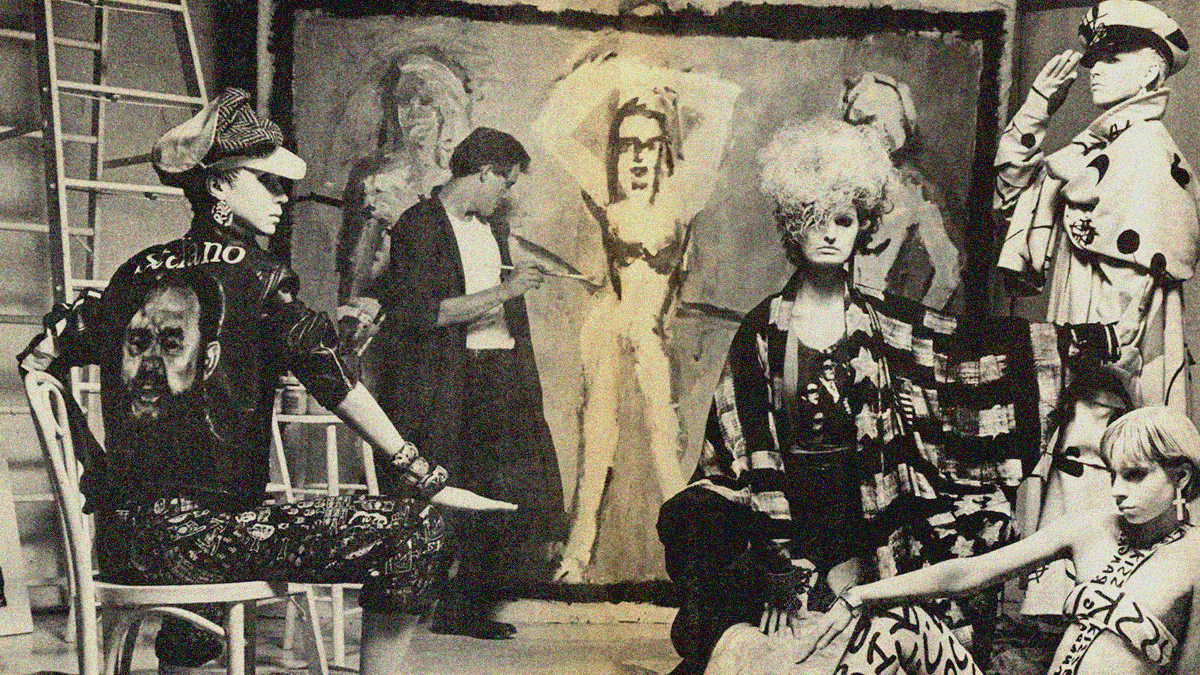
According to those who knew him best, Edward Brezinski never wanted people to ask, "Who's Edward Brezinski?" It's the main through line of Brian Vincent's Make Me Famous, a documentary about him (and the 1980s East Village scene), since Brezinski was always hustling for name recognition. He was infamously known for passing out fliers to his own shows (which occurred weekly) at other gallery openings and his self-pitch was so aggressive that Berlin friends recall everyone balking at his trademarked icebreaker: "Do you want to buy it?"
While his art was neither collected nor commodified to the levels of his most (Jean Michel Basquiat, Keith Haring, David Wojnarowicz) or least famous contemporaries, Brezinski did posthumously make it into a MoMA exhibition about their collective movement ten years after his death. His is a complex legacy considering the Pictures Generation painter who wrote his obituary (Walter Robinson) can't remember the work's aesthetic and the unlikely collector who owns much of it is a waiter from Brezinski's local bar (Lenny Kisko).
As one interviewee eloquently describes, this film is a "restoration" of an artist like one would restore an artwork. It won't fulfill his wish to become famous like those who came before (Julian Schnabel) or after (Jeff Koons), but it sheds light on his struggles, philosophy, and place within the abstract expressionist oeuvre as a prototypical participant. Brezinski is called a boob. An alcoholic. Annina Nosei even calls him prescient in the sense that he saw the industry moving away from meaning into consumerism. He was undeniably unforgettable.
This line of anecdotal storytelling is ultimately where Vincent's film shines brightest because Brezinski was involved in his fair share of insane moments. Hearing first-hand accounts of him throwing a glass of wine in Nosei's face while they were surrounded by twenty-five-thousand-dollar paintings is riveting. Same with the time he got fed up with Robert Gober's Dada-inspired fabrications of fabricated items and ate a donut from Bag of Donuts only to be rushed to the hospital after the artist explained they were treated in a poisonous resin.
Brezinski was an art piece himself. His penchant for confronting people with those fliers despite knowing they hated it or his Magic Gallery antics are very much performance art. Even Julie Jo Fehrle's tales of running into him in Europe with an exaggerated "Oh, hiiiii" feel so singularly caricatured that you must wonder if a line between identity and persona existed. His actual paintings being shown some love by their subjects and critics almost becomes a bonus with a Nancy Reagan portrait proving a nice claim to fame by pissing her off.
There's a lot of videocassette footage taken from shows back in the 80s and 90s to intersperse with the interviews being conducted, and it's all edited together with a nice mix of chronological causality and emotional resonance. Vincent and producer Heather Spore even stumble upon a trio of Brezinski's cousins for some early life context while the numerous questions surrounding his death lead them (and the artist's friends Marguerite Van Cook and James Romberger) to Europe to find a death certificate so they can put rumors of him still living to bed.
You must also appreciate the historical context threaded throughout to flesh out the era itself. Talk about painting being replaced by film only to be replaced by painting again. Mention of Koons and others leveraging business savvy to steal fame as interlopers in the scene when those born from its squalor were either discovered or forgotten. Feuds between artists. Nosei rebuking Kenny Scharf. Eric Bogosian's insights. And Mark Kostabi clocking in real-time how his desire to insult Brezinski as a way of praising himself actually did the opposite.
7/10
Superman
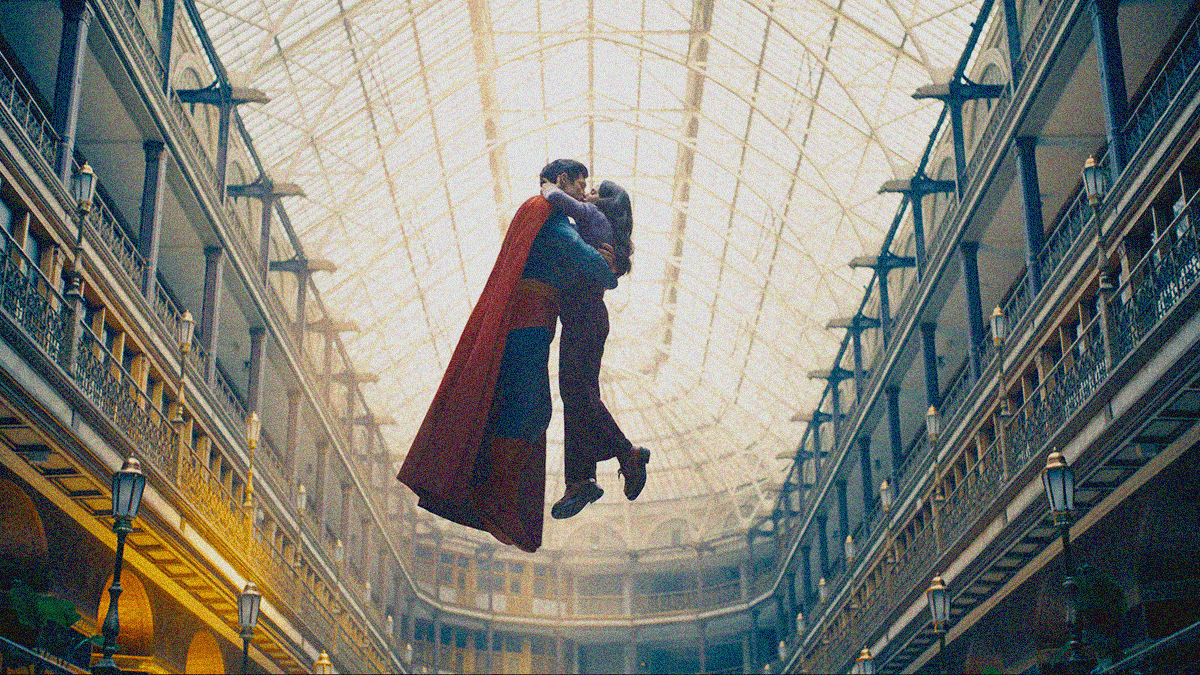
We're thrown straight into the action with Superman (David Corenswet) found face down, bloodied, and beaten in the snow nearby his Fortress of Solitude after just losing his first fight since becoming Earth's latest savior ... amongst the many metahumans who've been publicly visible and protective of humanity for three centuries. This is where we meet his rambunctious foster dog Krypto, find a cadre of robot servants, and learn about the volatile geopolitical crisis between Boravia and Jarhanpur at the heart of James Gunn's Superman plot.
The former nation says it seeks to emancipate the people of the latter from their oppressive leaders, but Superman (and anyone who's paying attention to the Russia/Ukraine parallel) knows they actually just want to invade and annex the territory after committing genocide to wipe out the Brown population struggling to survive there (see Israel/Palestine parallels also). So, Superman saves the day by threatening Boravia to stop their plans or face his punitive wrath. Is that his call to make unprovoked? Does anyone have the power to tell him, "No?"
Enter Lex Luthor (Nicholas Hoult) and his years of trying to find a way to shut this Kryptonian interloper down. With enhanced metahuman weapons at his side (Ultraman and María Gabriela de Faría's nanite-wielding The Engineer), he's playing puppet master behind the scenes to pit multiple nations against each other and defame Superman. With government contracts sanctioning his extreme methods (like creating a pocket universe with extinction potential), he's also positioning himself to rule a fiefdom of his own.
His plan? To make everyone's favorite alien into persona non grata overnight. And when the inherent political turmoil of the Kryptonian's hero complex doesn't quite prove enough to accomplish that result, Lex goes personal en route to uncovering an idea that Kal-El was sent to conquer Earth rather than save it. Gunn could have gone a million other directions to introduce his over-arching nature vs. nurture debate, so going full Omni-Man is a doozy of a choice that hopefully means a future narrative payoff is coming.
For now, it's all a convoluted yet effective way to pit Superman against Lex without needing a physical altercation since the latter uses loyal intermediaries (some slaves) to sub in. The damage then becomes window dressing for a conflict of words wherein the dialogue trumps the action and ensures the larger war isn't sacrificed for one film's battle. Superman must survive these obstacles to debate Lex and cultivate their rivalry while Mr. Terrific (Edi Gathegi) operates in the background to figure out how to put Metropolis back together in the aftermath.
So, despite the circus of periphery characters providing the world of Superman its history, this is still an origin tale. It's Kal-El and Lex's initial point of combat—the one where neither party will come out pretending the other is anything but an archnemesis. Luthor spirals into full ego-driven evil and Superman reconciles how the "mission" he thought his birth parents (Bradley Cooper and Angela Sarafyan) bestowed was never why he chose to help humans. It simply reinforced Pa (Pruitt Taylor Vince) and Ma Kent's (Neva Howell) unwavering love.
Plot therefore serves character. How does this conflict assist Kal-El in cementing his purpose? Help (or damage) Lois Lane (Rachel Brosnahan) and Clark's relationship? Impact the Justice Gang's (Mr. Terrific, Nathan Fillion's Guy Gardner, and Isabela Merced's Hawkgirl) morality and motivations? Infer upon the Daily Planet's journalism led by Wendell Pierce's Perry White and including Lane, Skyler Gisondo's Jimmy Olsen, and Mikaela Hoover's Cat Grant? Work Eve Teschmacher (Sara Sampaio) and Rick Flag Sr. (Frank Grillo) into the action?
By using robots and an insanely efficient evacuation protocol (surely a byproduct of dealing with metas for three hundred years already), the death count is virtually non-existent (save for one very important execution). Our focus can then rest solely on Superman's ethics and mission rather than the outside noise Lex is fabricating—a direct contrast to the Snyderverse trying to force Kal-El into becoming a monster as an avenue towards its melodrama. Gunn understands that Superman's burden is born from his empathy. So too is his enemies' hatred.
At the end of the day, it comes down to two men acting without oversight to save humanity. One does so with hope in his heart no matter the consequences to his own reputation. The other with hate by manipulating those consequences to serve his own selfish agenda. Even so, meaning well only works to give Superman the benefit of the doubt. It doesn't prevent him from still needing to be questioned and/or held accountable. That's what makes him interesting without the need to also turn him into a killer.
It's a compelling angle because Superman's righteous indignation is worth dissecting. Holding humanity's best interests in mind doesn't erase the fact he does act with impunity. So, let Lois loose and force him to confront that truth. Provide an example of journalistic integrity that operates on the facts to hold all figures in power to account no matter their goals or motivations. Show us a world that still works despite also being overrun by the same chaos, misinformation, and oligarchy as our own. Allow Superman a chance to learn and grow.
That's the sign of a true working system. Checks and balances. It's the difference between a vigilante (in this case Lex) and a representative of justice. Keeping that line blurry is paramount because it prevents someone as powerful as Kal-El from losing himself in the process of achieving his goals. It sends him back to the farm to connect with his Clark Kent roots rather than embrace the reality that Lex isn't wrong to point out. Because it wouldn't take much for Superman to go full autocrat and mold Earth into his own image—correct or not.
But still make it fun. Guy, Mr. Terrific, and Hawkgirl are a hoot in their stark contrast to Superman's Boy Scout, but the moments that stick with me most are the situational comedy like a full-on battle with an intergalactic kaiju occurring outside a window while Lois and Superman have a serious conversation. Those sorts of juxtapositions go a long way to keeping us entertained and thus invested in the messaging we're meant to absorb. It also sets up this world's weirdness. Heck, Peacemaker (John Cena) pops up as a television talk show guest.
Gunn's sensibilities are about as far from Zack Snyder's as possible, but it was still surprising to see that color and humor injected into Superman after so many years of the opposite. Will those traits be conducive to the rest of the new DC Cinematic Universe as an overall tone? Probably not (staring at you, Batman). So, despite a lot of the forthcoming slate being written and/or directed by Gunn, I’m hoping he understands his stewardship also demands some nuance insofar as knowing every character deserves the same justice he's now provided Kal-El.
And to that point, give Corenswet a ton of credit. His pivot from smiling doofus to frustrated petulance is effortless—especially when engaged in an impactful interview turned debate with Lois (Brosnahan excels as both a champion of her boyfriend and conscience asking him to acknowledge when he flirts with the same obstinacy as his villains). His performance always puts heart first. Even when desperate for survival opposite Anthony Carrigan's Rex, he asks his foe to help himself first. Because Superman isn't just a symbol. He's an inspiration.
8/10
Thunderbolts*
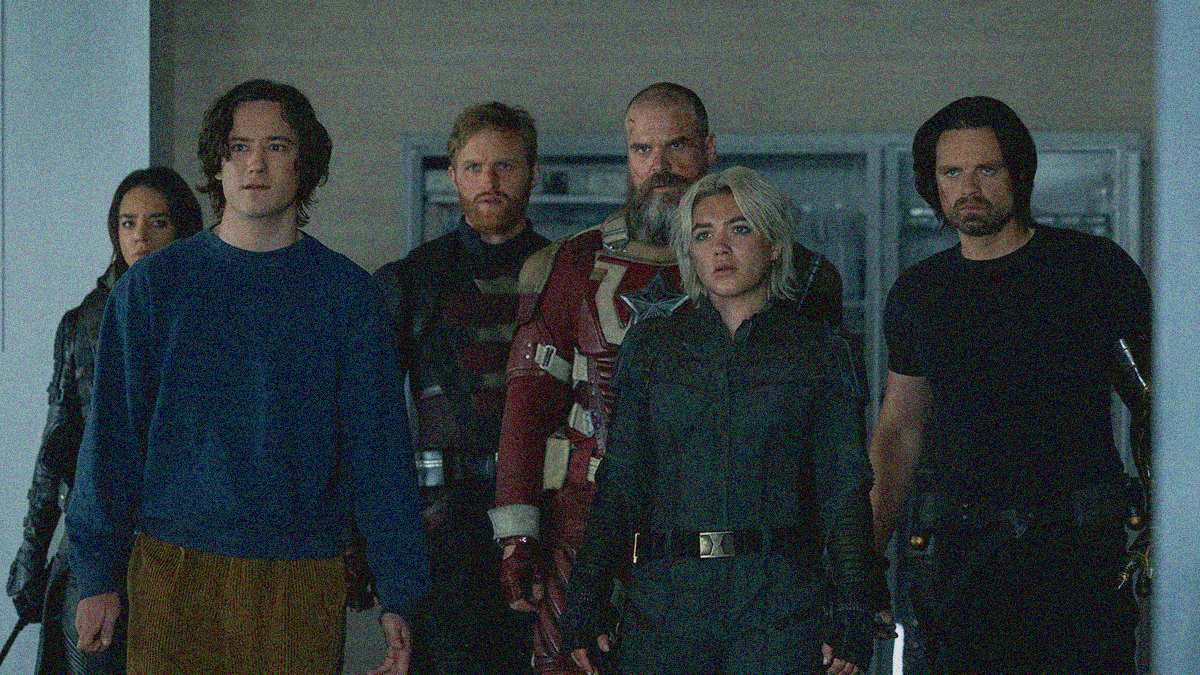
We've seen the stingers. Valentina Allegra de Fontaine (Julia Louis-Dreyfus) scooping up all the could-be heroes and would-be villains to use as covert operatives doing who knows what in the shadows. John Walker (Wyatt Russell). Ava "Ghost" Starr (Hannah John-Kamen). Yelena Belova (Florence Pugh). So, it's no surprise to see the latter on her latest mission to clean-up some laboratory stash of evidence de Fontaine needs nuked before her impending impeachment vote in front of Congress. Just another day on a thankless job.
Well, the isolation causes Yelena to feel the full breadth of her guilt and shame. She's realizing this life leaves no room for anyone to share it with ... or the sorrow of losing her sister Natasha is deep enough that it's tricked her into thinking that regardless of it being true. So, she tells Valentina the next one is it. She's ready to try balancing the scales like her sister did by becoming an Avenger. And, to her surprise, the boss agrees. Follow a rogue entity into a black site, discover what's turned them traitor to procure it, leave no witnesses, and she's free.
As we assume, however, Yelena is a "witness" too. A loose end tying up loose ends. Hence why screenwriters Eric Pearson and Joanna Calo expose the game almost as soon as she follows Ghost inside. Because if she's supposed to kill Ghost, why is Walker trying to kill her? And then Antonia Dreykov (Olga Kurylenko) shows up to kill him? While it takes these expendables way too long to figure it out (mostly because the job comes with blinders, but also, in Walker's case, because ego is a dangerous drug), we get it straight away.
The question then is whether any will succeed in their tasks before that realization since they're going to need as much help as possible to collectively find an escape after the blast doors fall. It won't be a trusting relationship or an efficient one considering they're all alphas suffering emotionally precisely because they refuse to work well with others, but the Thunderbolts* are born, nonetheless. They'll still need to begrudgingly collect Alexei (David Harbour) and be commandeered by Bucky (Sebastian Stan), but the "team" has formed.
Director Jake Schreier's main plot is therefore revenge. The Thunderbolts want to get Valentina for attempting to murder them all and Bucky wants the Thunderbolts to turn state's evidence and be the smoking gun in Congressman Gary's (Wendell Pierce) impeachment proceedings. There's just one more wrinkle with which to contend: Bob (Lewis Pullman). Who's Bob? Well, he doesn't even really know. But he was stashed in that black site and doesn't remember anything before volunteering for a medical trial, so we can quickly guess it's not good.
Everyone is on a collision course as a result and none of them quite know what to expect considering they've all allowed their dark sides to consume them. That goes for Bucky too despite having worked the past two MCU phases to walk into the light. You never fully shake that drive to paint outside the lines and thus the descent into self-loathing. Bob calls it the void, and it proves to be an apt label considering what occurs whenever he touches the others. They become transported into a painful memory to be reminded of their failings.
It makes for an absolutely fantastic Big Bad by way of The Sentry—an all-power God who is literally impervious to everything thrown his way. And when this guy goes full shame spiral? His entire body goes dark as though he's a three-dimensional silhouette with two barely visible, glowing dots for eyes. It's super unsettling and his attack is even more so considering he must only point at a person to poof them from existence with nothing but a shadow stain sprayed upon the asphalt. His loneliness and apathy threaten to consume everything.
I really like how Schreier and Marvel handle the narrative since its big world ramifications never overpower its small world stakes. This is a strictly character-driven plot about redemption ... if those characters are willing to allow themselves to be redeemed. It treats that internal struggle well too considering it doesn't demand some blanket idea of "forgiving yourself" to move on. These aren't villains who chose their villainy. Each was pushed either through experimentation, slavery, or propaganda. Their way forward is acceptance.
Not of their actions, but of each other. It's about becoming the mirror to coax out the people they all could have been if not for the abuse and/or torture they endured. Bucky serves as an example that it's possible. Alexei's toxic positivity makes him the annoying cheerleader they must appreciate and open themselves to just to shut him up. And Bob is the mission that they get to choose. Because he's not just someone who needs saving from external and internal forces. He's a troubled, broken soul like them. By saving him, they might also save themselves.
Their shame is manifested cinematically by way of the multi-dimensional rift rotation aesthetic from Doctor Strange. One nightmarish memory connects to the next through walls and mirrors with each escape throwing the character into another one from a totally different direction. Each room is meant to hold its victim hostage. To fill them with such despair that they'll never be able to leave. It's why they must break through the concrete and glass to find each other. Not to subdue the darkness, but to show it that it no longer controls them.
All the asterisk stuff is fun and ultimately kicks off what looks to be a more cohesive path forward after the disjointed doldrums of one-offs, misfires, and misunderstood installments post-Endgame, but it's this impressive display of human vulnerability that makes Thunderbolts* so good. It's what made Black Panther and Eternals great too—a resonant story about surviving the past and finding your place in the future. Evolving into what you want to be rather than letting the world decide you can't. It's a rebirth. Finally.
8/10
Twinless
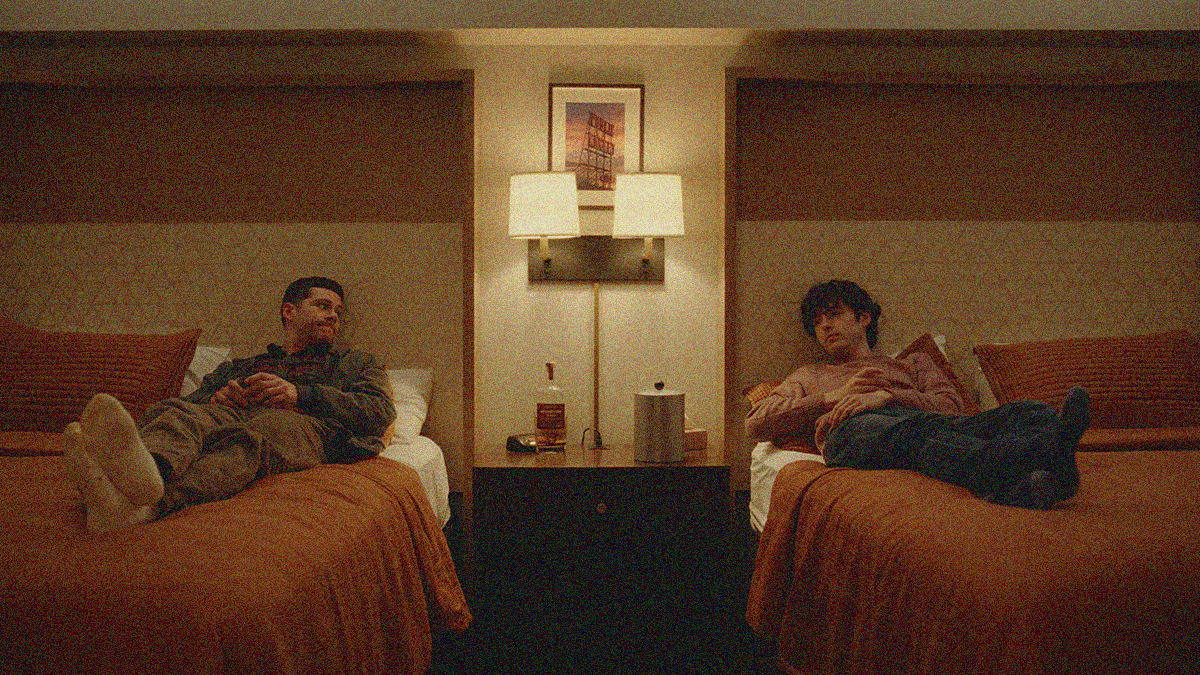
We populate multiple spheres of existences with varying identities specific to each. So, when Roman (Dylan O'Brien) asks Dennis (James Sweeney) if he thinks they'd be friends had they met under different circumstances, we understand the answer is "No" regardless of whether they'll admit it. Because they know it too as completely different people from disparate worlds—conditions that rarely allow two such people to meet let alone with the prospect of connection. Context matters. Vulnerability matters. It's honestly why so many of us feel alone.
Sweeney's Twinless (he also writes and directs) extensively deals with this reality whether it's Dennis assuming the receptionist at his work (Aisling Franciosi's Marcie) is a loser (despite trying to be his friend), their co-worker (Susan Park's Sage) constantly feeling violated whenever anyone remotely pays attention and treats her like a human being rather than a robot compartmentalizing personal and professional lives, or Roman uncharacteristically opening up to strangers at a group therapy meeting for those who've lost their twins.
That's where he meets Dennis. A place where the barriers of Roman's very cishet life are down enough for a gay man to get close enough to be seen as more than a label. Curiosity breaks the ice. Roman's twin Rocky was gay; Dennis's twin Dean was straight. It's an intriguing commonality that's able to bind their shared humanity. The kind of "this guy gets it" moment all friendships are based upon. And it's solely due to context forcing them out of their comfort zones to ensure their defenses don't prevent a potential spark they'd usually ignore.
The film is also heavily interested in subjectivity's inherent duality. Roman thinks his brother was the favorite twin for many reasons—none of which are objective. Rocky was the popular and smart one. The one who traveled and lived life to the fullest. But it wasn't because of those things. If anything, it was due to Roman's inability to get out of his own way thanks to a volatile temper that kept everyone at arm's length. Because Roman was the good one in Rocky's mind. The protector. The one who fell victim to always feeling too much.
It's true for cause and effect as well. Is an unforgivable lie okay if it helps build something beautiful? Is Marcie so happy because she's an oblivious extrovert who befriends every stranger she passes or because she knows her boundaries and will never sacrifice that happiness by letting those strangers exploit it? Is a desperate person publicly holding someone to account the reason the latter died when attempting to comply or is it the latter's fault for pushing the former to chase them in the first place? Are our myriad connections merely coincidence?
Chicken, meet egg. Roman, meet Dennis. Because, while you may believe Twinless is Roman's journey for the first twenty minutes of its runtime, a delayed opening credits sequence delivers a pivot point of perspective that places most of what follows in Dennis's shoes. I won't tell you why or how considering the revelation is a big piece of this puzzle and deserves to be experienced on its own. Just know that it flips everything we've seen upside down. Not the result, but the motives. Roman and Dennis becoming best friends is real. It's simply not fated to last.
And we must wonder if everything is literally upside down considering there are many aspects that alter in the process. Yes, it could just be a byproduct of us knowing more than we knew at the beginning, but perhaps it's also that perspective shift. The opening is from Roman's experience and therefore he comes off as stoic and temperamental. After the pivot it's from Dennis's view so Roman suddenly feels more gregarious while Dennis gradually becomes a third wheel. Their opinions of themselves are never not harsh.
What's great about Sweeney's script, though, is that he's unafraid to present that truth as being necessary. Roman eventually reveals the events leading to his fractured relationship with Rocky (via an unforgettable scene of emotion that O'Brien knocks out of the park) and they are reason enough to hate himself. We know the lie Dennis is struggling to keep intact—one that's big enough and unforgivable enough to render his self-loathing appropriate. Cue Marcie's line, "Deservedness is not a requisite for forgiveness."
That's ultimately the key message. The distance between Roman and Rocky based on assumptions because the former didn't feel he deserved his brother's love despite needing it to survive. The inability for Dennis to admit the truth knowing it would probably force him back into the depressive loneliness fate plucked him from twice. We've all acted unforgivably in our lives and have surely been irrevocably changed by the fact we weren't absolved, but that doesn't mean we should give up. Twinless doesn't judge its characters. It honors their flaws.
This obviously means the subject matter is dark and the violence (both physical and emotional) brutal, but Sweeney doesn't let that stop him from also making the film very funny and sweet in those moments where life slows down to become simple interactions between two people unaware of the reasons they should be enraged. I love Dennis's snark, Marcie's genuine joie de vivre, and Roman's awareness of his shortcomings and desire to be corrected rather than laughed at. In a perfect world, these three are inseparable for life. Perfect worlds don't exist.
8/10
The Ugly
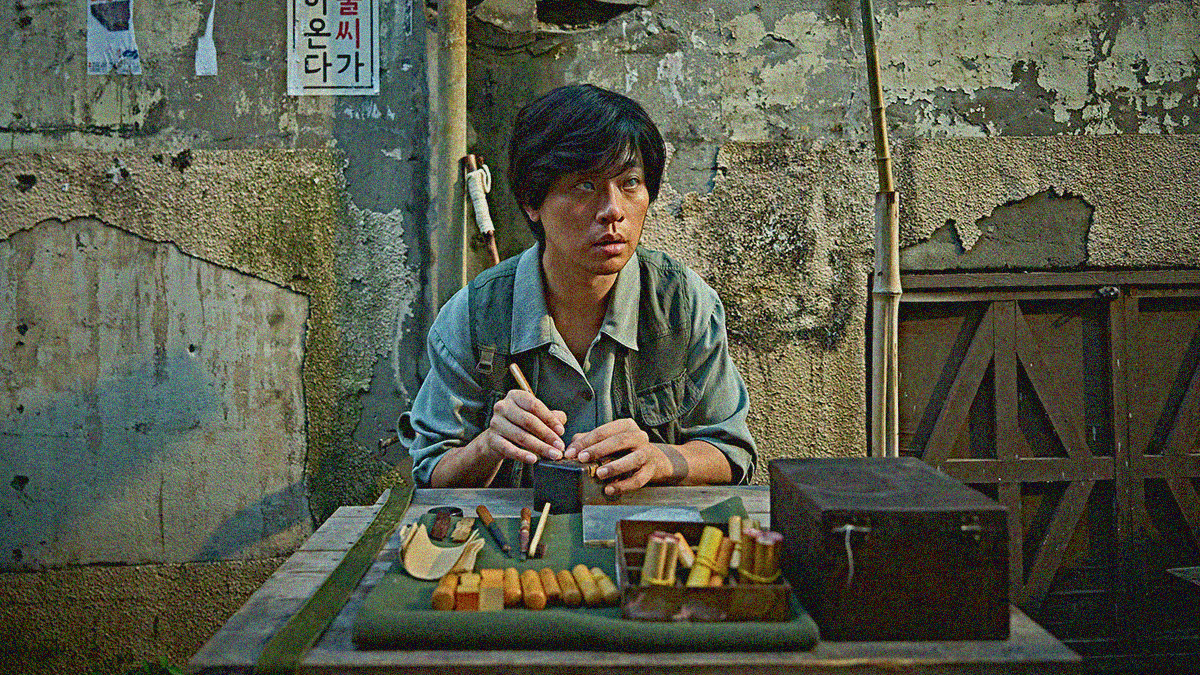
This isn't the first time Im Yeong-gyu (Kwon Hae-hyo) has been interviewed. He's an artisan who's been blind since birth and yet is capable of crafting beautifully engraved characters upon custom wooden stamps. People hail him as a genius. A hero. He merely sees himself as a hard worker who strove to survive a very rough period in South Korean history. To hold his head up high, overcome the ridicule and abuse he faced his entire life, and raise a son who could be proud of him. Well, Im Dong-hwan (Park Jeong-min) is exactly that.
Documentarian Kim Su-jin (Han Ji-hyeon) likes a good human interest story, but she's obviously looking for a little more bite by asking questions about Yeong-gyu's ability to raise a child on his own despite his impairment. She wants to know about the struggle more than the art—like the scar on his hand he's quick to hide upon it being mentioned. Su-jin pries just enough to make Yeong-gyu wonder if they should stop, but Dong-hwan knows too well what the exposure could do for their business. So, he coaxes him to keep playing along.
That's when the bombshell at the center of Yeon Sang-ho's The Ugly (adapted from his own graphic novel Face) is revealed. Despite the Im men believing their matriarch had run away all those decades ago, her remains have recently been found not too far from where Yeong-gyu's first stamp stand was located. While the police don't want to jump to conclusions, the way in which she was buried suggests foul play—regardless of the statute of limitations being too far gone to investigate. So, sensing a juicy subplot, Su-jin starts digging into it herself.
The first clue arrives from Jung Young-hee's (Shin Hyeon-bin) sisters—family Dong-hwan didn't know existed. The next from her former co-workers who ultimately point them in the direction of others who might know more. While the details escalate in drama with each interview (the film is broken up into chapters separated by these interrogations), one specific aspect remains the same: that Young-hee was so ugly that they called her a monster. Nicknamed "Dung Ogre" after a truly unfortunate incident, nobody cared to wonder where she'd gone.
It makes sense through a superficial and incomplete read of the story. A blind man who society deemed worthless meets an unattractive woman that same society reviles because she understands him and he can't see her. Yeon's film doesn't simply leave this understandable revelation in the background before dealing with the mystery of Young-hee's death, though. No, this dynamic's inherent social and political commentary on the time and mankind's shared penchant to forsake pariahs ensures The Ugly delves much deeper.
This nuanced journey is made possible by Yeon's decision to keep Young-hee's face hidden in shadows, underneath hair, or cropped off-screen throughout. As each eyewitness to her life shares their story (including Im Seong-jae as her convivial yet unsavory factory boss Baek Joo-sang), we are transported back in time to watch their words unfold. There's Young-hee earning her nickname, meeting Yeong-gyu (played by Park in these flashbacks), and interacting with the interviewees. We're forced to take their word on her appearance.
It's a brilliant performance from Shin as a result. The meek voice, cautious movements, ashamed hand gestures—Young-hee's position as an outcast comes through each and every scene. This is also why her eventual courage to stand-up for someone (who was never particularly nice to her either) proves so potent. We recognize the change in demeanor. There's still a quiver in her voice, but it's less from fear than anger. Is it because she's simply had enough? Or is it because the love of her husband has empowered her to no longer suffer alone?
The answer is complex since the changing context from each perspective seems to render things much worse than we could imagine. Not just because of where Su-jin's investigation inevitably points, but also the justification the murderer uses to absolve themself of any wrongdoing. I think it probably hits harder for those versed in Korean history and what Yeon calls its contemporary "growth-centric" period, but these are very universal lines of thinking that mirror the infinite growth capitalism ruining America too.
Workers are sacrificed for profits. Scandals are erased by financial security. Truth becomes secondary to mutually agreed upon lies. Purpose trumps actions. And since Young-hee was a person everyone was quick to cast aside so as not to confront their own ugliness, the world's cruelty and injustice can continue. Young-hee doesn't even need to be a monster for it to happen either. She must only be an easy target to dispose of without worrying that her blind husband might stumble upon the truth. Bullying is never about the victim.
7/10

This week saw Garbo Talks (1984) and Gleaming the Cube (1989) added to the archive (cinematicfbombs.com).
Ron Silver dropping a diplomatic f-bomb in Garbo Talks.

Opening Buffalo-area theaters 9/26/25 -
• Balti at Regal Elmwood
• Bau: Artist at War at Regal Transit
• Dead of Winter at Regal Elmwood, Transit, Galleria, Quaker
• Dude Perfect: The Hero Tour at AMC Maple Ridge; Regal Elmwood, Transit, Galleria, Quaker
• Eleanor the Great at Dipson Amherst; Regal Transit, Galleria, Quaker
Thoughts are above.
• Gabby's Dollhouse: The Movie at Dipson Flix, Capitol; AMC Maple Ridge, Market Arcade; Regal Elmwood, Transit, Galleria, Quaker
• Girl Climber at Regal Transit
• Homebound at Regal Elmwood (through Sunday only)
• Karam at Regal Elmwood
• Looking Through Water at North Park Theatre (select times)
• The Lost Bus at Regal Quaker
• One Battle After Another at Dipson Amherst, Flix, Capitol; AMC Maple Ridge, Market Arcade; Regal Elmwood, Transit, Galleria, Quaker
• The Strangers: Chapter 2 at Dipson Flix, Capitol; AMC Maple Ridge, Market Arcade; Regal Elmwood, Transit, Galleria, Quaker
• They Call Him OG at Regal Elmwood
Streaming from 9/26/25 -
• All of You (AppleTV+) - 9/26
"For all the promise of a new spin via its sci-fi trappings, All of You is ultimately a familiar story told familiarly with a fresh coat of paint. It's a well-made and effective facsimile, but I wonder if it missed its potential to say more." – Full thoughts at HHYS.
• French Lover (Netflix) - 9/26
• House on Eden (Shudder) - 9/26
• M3GAN 2.0 (Peacock) - 9/26
• The Man in My Basement (Hulu) - 9/26
• Ruth & Boaz (Netflix) - 9/26
• Karate Kid: Legends (Netflix) - 9/27
• Prime Minister (HBO Max) - 9/30
• The Naked Gun (MGM+/Paramount+) - 9/30
• Bonjour Tristesse (Starz) - 10/1
• Fight or Flight (Paramount+) - 10/1
"Chandran and Sackhoff are good as the two actors with enough screen-time to not be relegated into bit parts like everyone else. So, it's up to Hartnett to carry Fight of Flight on his shoulders and the tone is right in his wheelhouse to ensure he does." – Full thoughts at HHYS.
• McVeigh (Starz) - 10/1
"McVeigh is a well-made piece, but its lack of proving its worth as a version of this story to tell (either as prescient or cautionary) sinks it. We need more than his readily available and presumed process. We watch the news." – Full thoughts at HHYS.
• Play Dirty (Prime) - 10/1
Now on VOD/Digital HD -
• Adulthood (9/23)
• Blowin' Smoke (9/23)
• The Cut (9/23)
"I’ve been a fan of Ellis for twenty years, but his attempts to infuse this men’s rights movement slog of a scree with energy via some nice visual flourishes isn’t enough. It’s just meathead, anti-mental health aggression." – Full thoughts at HHYS.
• The Fantastic Four: First Steps (9/23)
• The Goldfinger (9/23)
• Monk in Pieces (9/23)
• Splitsville (9/23)
• To Kill a Wolf (9/23)
"It leads to an unforgettable final chapter that finally sees the pent-up emotions inside both get released. Brown and Martin are fantastic, but so too is the script for never treating the supporting roles as pieces solely present for the leads’ sake." – Full thoughts at HHYS.
• Unicorns (9/23)
• Death of a Ladies' Man (9/26)
• The Demon Detective (9/26)
• Swimming Home (9/26)
• Went Up the Hill (9/26)
"Credit Krieps and Montgomery for embodying the vulnerability, fear, and yearning that propels these characters to allow themselves to be used as vessels for the other’s healing." – Full thoughts at HHYS.

Pieces from the Pretty Woman (1990) press kit.
